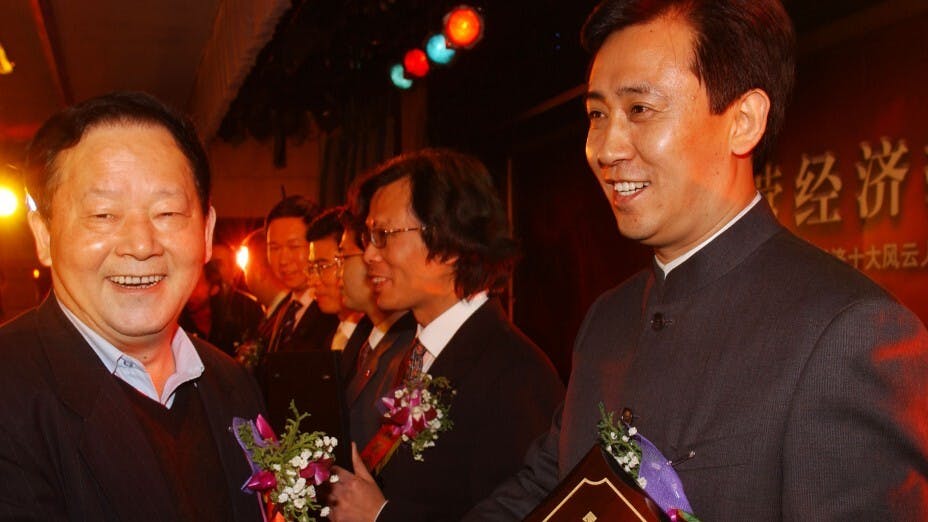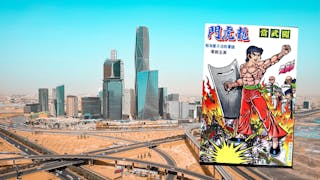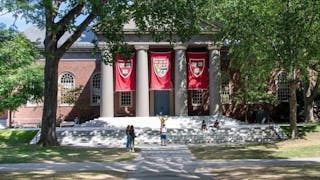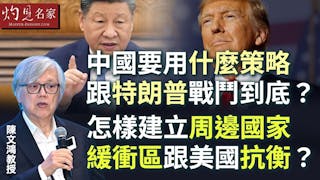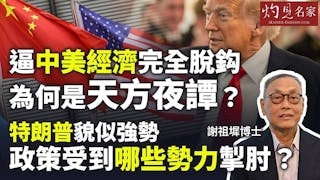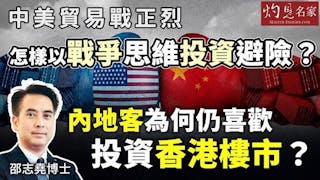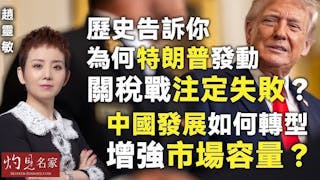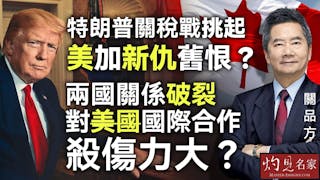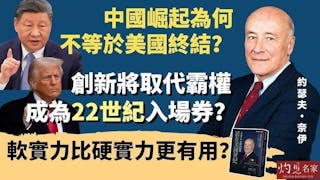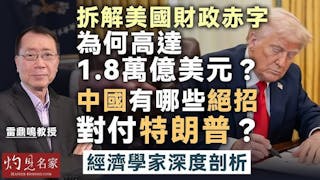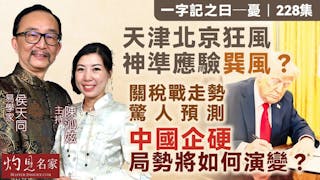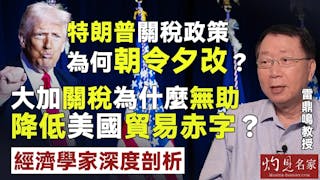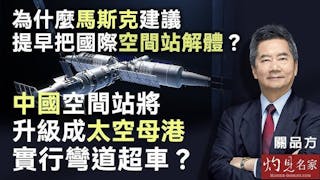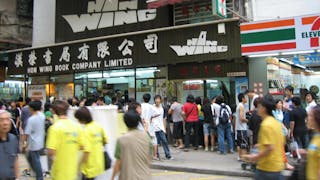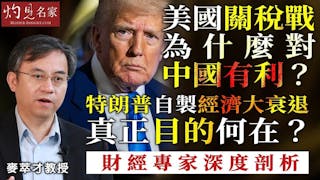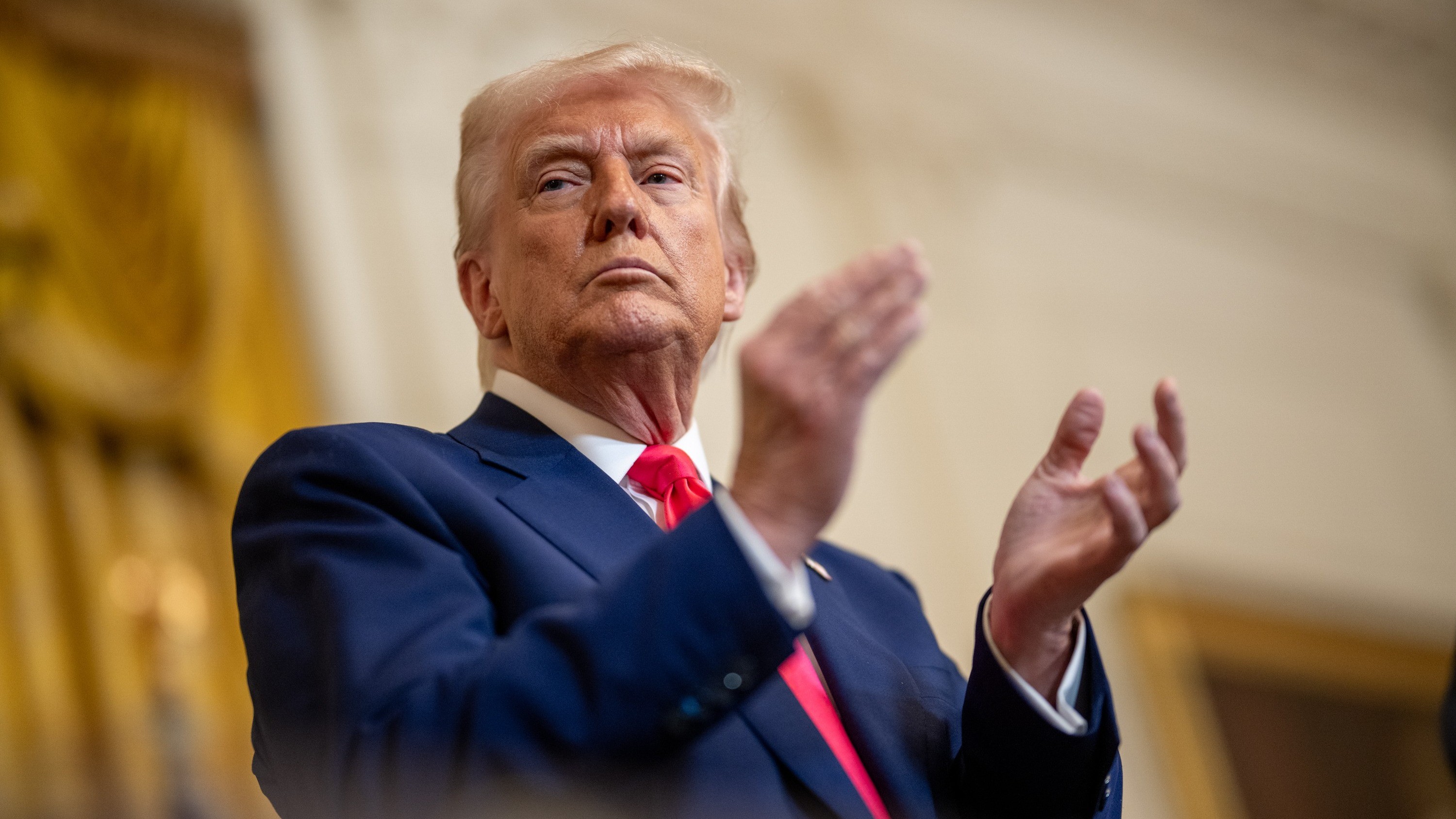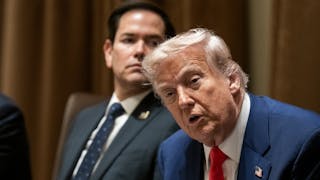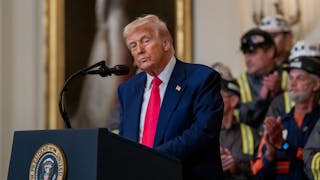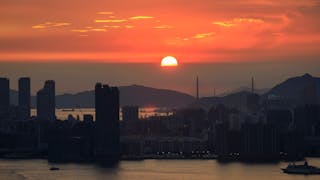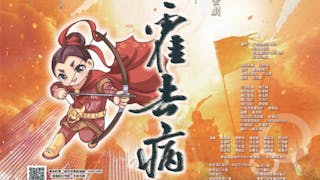中國恆大集團前董事長許家印於2023年9月被「監視居住」,他的困境不僅標誌着這位紅色資本家在嶄露頭角多年後的衰敗,但中國房地產市場管理、銀商關係及中國社會主義與資本主義混合經濟的不徹底改革也存在巨大漏洞。
恆大9月下旬宣布對許家印採取「強制措施」,恆大地產正接受調查。隨後,恆大前總裁夏海鈞和前首席財務官潘大榮因財務營運調查被拘留。
許家印的興衰,因其社會主義政權下的「紅色資本主義」本質,值得我們關注和深入分析。
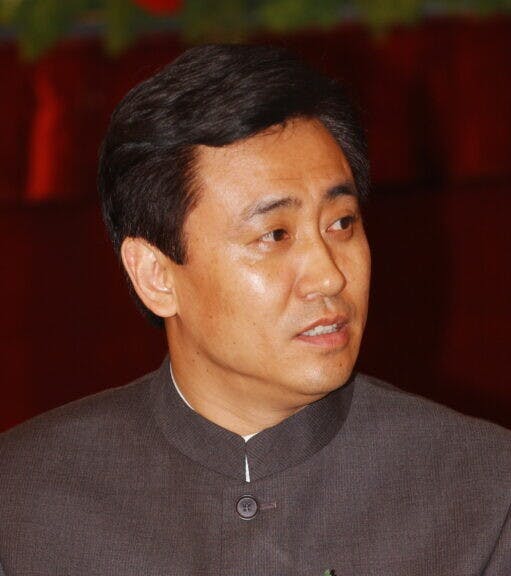
許家印生平
許家印於1958年河南省出生,當時毛澤東領導下的中國共產黨發動了「大躍進」運動。許家印在八個月大時失去了母親,由勤勞的父親和祖母撫養長大。1982年從武漢鋼鐵學院畢業後,他在一家鋼鐵廠擔任技術員。到了1992年,他南下深圳打工。深圳是鄧小平改革開放快速發展的中國經濟特區。在上級的支持下,許家印原本在一家房地產公司擔任銷售員,累積了一定的資本,並逐漸在廣州市發展了自己的房地產業務。
1996年,許家印剛創立了當時只有8名員工的恆大,並向銀行借款,迅速擴張自己的商業帝國。 1997年,許家印的住宅項目金碧花園是他的第一筆投資,為他日後的成功鋪平了道路。 2008年,許家印當選為全國政協委員,成為為大陸政府建言獻策的精英之一。2009年,迅速擴張的恆大在香港股市成功集資90億美元,為他與一些香港富商建立更密切的關係打開了大門。
一些內地網民形容許家印與一些香港富豪關係很好,在許家印的商業帝國擴張期間和財務困難初期,這些富豪都投資了許家印的商業帝國。2012年,許家印出席全國政協會議時,被看到繫着一條名牌金扣皮帶──這是一個「紅色資本家」在中國政經舞台上迅速崛起的標誌。他的商業帝國投資於足球現代化;2011年至2017年間,廣州恆大足球俱樂部令人印象深刻地贏得了八次中超聯賽冠軍和兩次亞冠聯賽冠軍。2017年,許家印被視為亞洲最有錢的富豪之一,身家估計為425億美元。巔峰時期,恆大在280個城市擁有約1300個項目。
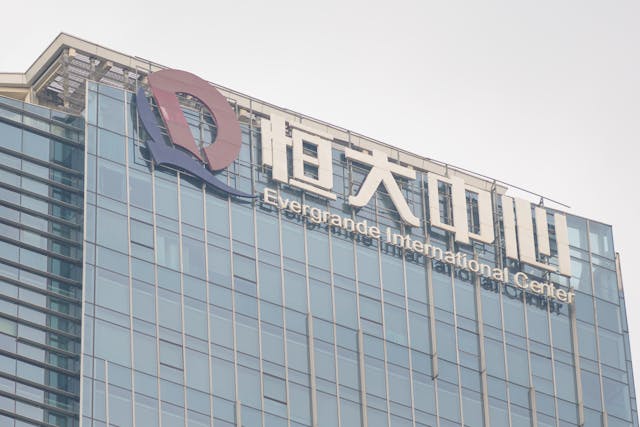
新政策推出導致財富縮水
2020年,北京中央政府推出了更嚴格的規定,限制大型房地產開發商的欠款金額。「三條紅線」出現:開發商剔除預收款後的資產負債率大於70%;淨負債率須大於100%,同時現金短債比須小於一倍。銀行被勒令不得向逾越三條紅線的土地開發商提供貸款。隨着這些嚴厲措施的實施,許家印的公司財務問題也浮現。2023年5月,恆大集團表示,其逾期債務、未付帳單和款項達9000億元。恆大股市估值開始縮水,許家印的身家大幅縮水。
在許家印的財富縮水之際,他對中國共產黨的忠誠仍毋庸置疑。2021年7月1日,正值中國共產黨成立100周年之際,許家印作為官方嘉賓在慶祝活動上表示,「我和恆大的一切,都是黨給的,國家給的,社會給的」。
在被警方「監視居住」之前,許家印試圖挽救公司的財務狀況,該公司計劃進行重組,擬將資產出售,以避免拖欠3000億美元的巨額債務。2021年,許家印承諾加快預售物業的建設和竣工。2021年9月,100名市民在恆大總部抗議,要求償還貸款和金融產品,恆大試圖通過賠償來解決他們的不滿。客觀地說,許家印在恆大的最後階段仍試圖解決債務和管理問題。 然而,補救行動似乎為時已晚。據報道,截至2023年10月中旬,120萬套預售房產中約有80萬套尚未完工。
恆大的財務困境
2023年8月,恆大在美國申請破產保護──此舉涉及香港、開曼群島和英屬維爾京群島的重組程序。然而,此舉引發內地一些批評人士9月在社交媒體上質疑該公司的債務是否可能「轉移」回內地。2023年9月下旬和10月初,公眾對許家印及其公司的不信任在大陸社交媒體上變得明顯。
巧合的是,在許家印被「監視居住」之後,大陸又拘捕了一名涉嫌違法發放貸款的銀行高層。2019年至2023年擔任中國銀行董事長的劉連舸面臨受賄指控,他於2023年3月辭職。
2023年9月中旬,恆大集團財富管理部門多名員工在深圳被立案調查。根據內地傳媒報道,恆大金融財富管理公司成立於2015年,是恆大集團的全資子公司。另一方面,根據國家金融監理局發布的通知,恆大人壽保險公司則被國家支持的海港人壽接管。
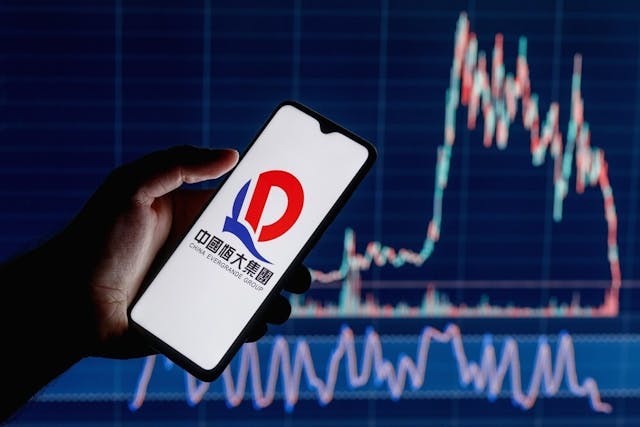
中國決心打擊土地開發商過度舉債
許家印的衰敗和恆大的財務困境表明,首先,在中國混合經濟的發展過程中,社會主義的政府干預方式,在控制紅色資本家及其企業的行為和績效方面仍然具有決定性和干預性。 許家印的倒下,是中國決心打擊土地開發商過度舉債、銀行業濫用權力過度放貸,以及恆大財富管理中任何管理不善行為的典型例子。
再者,許家印及其公司同事所採用的預售房產制度也存在很大的問題,許多房產未能竣工,但購房者支付了分期付款,期望他們的住宅單位能夠竣工。內地傳媒,尤其是網上平台的自媒體,對許家印的批評前所未有,稱他和他的下屬不僅繼續向銀行貸款購買更多三四線住房項目,而且採取了「令人無法接受」的做法。內地城市也將工程承包給承包商,但未能依期完成建設工程。對建築承包商的內部監管似乎鬆懈,而恆大的商業帝國過度延伸到其他領域,包括汽車工業和體育──對於一家野心勃勃的房地產公司來說,這些目標太過遙遠,在財富管理、再投資管理和外判項目管理方面的捉襟見肘變得嚴重。
許家印日益奢華的生活方式,使過度借貸和過度擴張的問題變得更加複雜。內地社交媒體和網民紛紛指摘他在廣州的歌舞團及私人飛機和遊艇。在內地的視頻中,許家印公開講述了他靠紅薯窩窩頭和鹽巴為生的艱苦童年和青少年時期,但這位迅速崛起的紅色資本家卻逐漸沉浸在「資產階級」生活方式中。
許家印的另一面
然而,許家印卻展現了他人文主義的一面;他是一位慈善家,為貴州省的窮人和有需要的人捐款。2018年,許家印回到家鄉,給每戶人家發了錢、米、油。在日益「資產階級」的社會和環境的精神「腐蝕」的辯證過程中,他並沒有失去社會主義覺悟。
許家印衰敗揭示的另一個問題是地方政府與三、四線城市土地開發商之間的共生關係。從理性選擇的角度來看,小城市地方政府透過與土地開發商的關係,推動房地產項目的發展符合個人利益。地方官員和黨幹部希望透過與紅色資本家建立密切關係來升職和自肥。如此這般,只要這些住房和地產項目能夠完成,許家印的公司在各個城市的投資就成為雙贏局面。然而,住房項目竣工監管管理不善,風險極大,購屋者的利益受到威脅。大型房地產項目無法如期交樓給買家,可能會損害中國國家安全中社會和經濟等方面。正如評論員胡錫進9月29日在《環球時報》上寫道:「老胡強烈希望並且相信,各地的保交樓行動不會受許家印個人命運的影響,堅決減少購屋者的各種損失,這應是接下來處理恆大事件的最大考量。」
有內地傳媒指許家印和妻子丁玉梅「技術離婚」。無論真假,許多內地網民批評許家印如何監督公司投資,以及如何以犧牲公共利益為代價「致富」。批評者指出,許家印的公司高層不斷獲得股息,而客戶卻因住房和地產項目無限期推遲完工而蒙受損失。
引發對房地產市場審計的嚴重質疑
許家印的衰敗及與恆大相關的財務和管理問題,引起人們對中國房地產市場審計有效性的嚴重質疑。一家健全的公司必須有外部和內部審計,這是良好公司治理的重要制衡機制。中國被忽視的一個教訓是,如何每年改善和嚴格執行所有私人企業(尤其是土地開發商)的審計流程和要求。恆大首席經濟學家任澤平於2017年加入該公司,但他抱怨稱,任何內部要求降低負債率的要求,都會在他與高管的會議上受到批評──這表明恆大內部的公司治理缺乏充分和健康的制衡。
歸根結柢,中國的混合式經濟改革仍然是片面的,包括對國有銀行與土地開發商關係的監管遲遲沒有到位、銀行貸款過多、土地開發商內部管理不善、過度擴張到其他很容易因連鎖反應而損害主業的領域(例如最終未完工被廣州市政府接管的廣州恆大足球場)。
總之,許家印作為忠於中國共產黨的紅色資本家,他的衰敗對社會、經濟和政治影響很大。中國的混合式經濟仍有待改革;中央在規範銀行與土地開發商的關係,以及控制向房地產市場紅色資本家提供的銀行貸款金額方面出現了嚴重漏洞。任何像恆大這樣過度擴張和管理不善的房地產企業,都可能對社會和經濟產生嚴重影響。2021年9月,不滿的客戶在恆大總部外舉行抗議活動,可能被解讀為危害社會穩定的潛在行動。恆大內部在財富管理、投資、項目竣工等方面的管理不善,成為必須盡快解決、平息民憤的問題。內地的社會主義制度有着快速發展的混合經濟,其中資本主義和市場化的方面明顯「腐蝕」了銀行業高管和房地產市場精英之間的關係,而社會主義的方面則要求政府立即採取行動,對企業治理不善採取有效控制,以免對大陸的社會和經濟安全產生不利影響。
The fall of a Red Capitalist in China and its implications
The predicament of the former Chairman of China Evergrande Group, Xu Jiayin (or Hui Ka Yan in Cantonese), who was put under “residential surveillance” in September 2023, signaled not only the fall of the red capitalist after years of his prominent emergence, but also tremendous loopholes in the management of Chinese real estate market, the banking-business relations, and the incomplete reforms embedded in the mixed socialist-capitalistic economy of China.
Evergrande announced in late September that Xu was subject to “mandatory measures” and that the Hengda Real Estate was under investigation. Later, Evergrande’s former chief executive Xia Haijun and former financial officer Pan Darong were detained in an investigation of its financial operations.
The rise and fall of Xu Jiayin deserve our attention and deeper analyses because of his “red capitalist” nature in a socialist regime.
Xu was born in Henan province in 1958 during which the Maoists launched the Great Leap Forward Movement. Losing his mother at the age of eight months, Xu was raised by his hardworking father and grandmother. After his graduation at the Wuhan Iron and Steel Institute in 1982, he worked in a steel company as a technician until 1992. Then he went to try his fortune in Shenzhen, a fast-growing special economic zone in Deng Xiaoping’s reformist China. Supported by his superior, Xu originally worked as a salesperson in a property company, accumulated some capital and gradually developed his own property business in the city of Guangzhou.
In 1996, Xu founded Evergrande originally with only eight employees and borrowed loans from banks, expanding his business empire quickly. In 1997, Xu’s housing project Jinbi Garden was his first investment paving the way for his future success. In 2008, Xu was elected a member of the Chinese People’s Political Consultative Conference, becoming one of the elites giving advice to the mainland government. In 2009, the rapidly expanding Evergrande succeeded in raising US$9 billion in the Hong Kong stock market listing, opening the door to his closer networking with some rich Hong Kong businesspeople.
Some mainland netizens portrayed Xu as having good guanxi (personal connections) with a few Hong Kong tycoons, who invested in Xu’s business empire during its expansion and amid the initial period of his financial difficulties. In 2012, when he attended a party conference, Xu was seen as wearing a golden buckled belt – a sign of how a “red capitalist” rose quickly in the Chinese politico-economic arena. His business empire invested in football modernization; the Guangzhou Evergrande football club impressively won eight Chinese Super League titles and two Asian Champions Leagues between 2011 and 2017. In 2017, Xu was regarded as one of the wealthiest people in Asia with an estimated US$42.5 billion. At its peak, Evergrande had some 1,300 projects in 280 cities.
In 2020, the central government in Beijing brought in tighter rules to limit the amount of money owed by large real estate developers. The “three red lines” emerged: developers must cap their ratio of liability to asset to 70 percent, limit their ratio of net debt to equity to 100 percent, and acquire more cash than short-term debts. Banks were ordered not to lend to land developers who crossed the three red lines. In the wake of these tight measures, the financial troubles of Xu’s company came to surface. In May 2023, the Evergrande Group said that its overdue debt, unpaid bills and payments amounted to RMB 900 billion. Evergrande’s stock market valuation began to shrink, and Xu’s fortune plunged considerably.
At a time when Xu’s fortunes dipped, his loyalty to the ruling regime remained unquestionable. On July 1, 2021, during the one hundred anniversaries of the Communist Party of China, Xu was an official guest celebrating the event and saying that “all those things possessed by me and Evergrande came from the Party, the state and the society.”
Before his “residential surveillance” by the police, Xu tried to rescue the financial situation of his company, which was undergoing a restructuring plan that would offload assets to avoid defaulting its huge debt of US$300 billion. In 2021, Xu promised to accelerate the construction and completion of pre-sale properties. After 100 citizens protested at Evergrande’s headquarters in September 2021 to demand the repayment of loans and financial products, the company attempted to address their grievances through compensation. Objectively speaking, Evergrande during Xu’s last phase of his leadership attempted to address its debt and managerial problems. Yet, the remedial action appeared to be too late. As of mid-October 2023, it was reported that about 800,000 of 1.2 million pre-sold properties were not yet completed.
In August 2023, Evergrande filed for bankruptcy protection in the US – a move referred to the restructuring process in Hong Kong, the Cayman Islands and the British Virgin Islands. However, this move prompted some critics in the mainland to question in social media in September whether the company’s debt would perhaps be “transferred” back to the mainland. Public distrust of Xu and his company became obvious in the mainland social media in late September and early October 2023.
Xu’s “residential surveillance” was coincidentally followed by the mainland detention of a bank executive for their alleged involvement in giving out illegal loans. Liu Liange, the chair of the Bank of China from 2019 to 2023, was facing corruption charges and he resigned from his position in March 2023.
In mid-September 2023, several employees working in the wealth management unit of the Evergrande Group were placed under criminal investigation in Shenzhen. According to the mainland media, the Evergrande Financial Wealth Management Company was established in 2015 as a wholly owned subsidiary of the Evergrande Group. On the other hand, Evergrande Life Assurance Company was taken over by the state-backed Hai Gang Life, according to a notice issued by the National Administration of Financial Regulation.
The fall of Xu and the financial difficulties of Evergrande showed that, first, amid the development China’s mixed economy, the socialist style of governmental intervention remains decisive and interventionist in controlling the behavior and performance of red capitalists and their enterprises. Xu’s development was a typical example of how China has been determined to crack down on excessive borrowing by any land developer, the alleged abuse of power in the banking industry’s offer of excessive loans, and any maladministration within Evergrande’s wealth management.
Furthermore, the pre-sold properties that were adopted by Xu and his company associates showed tremendous gaps. A lot of properties failed to be completed, but home buyers paid their installments with the expectation that their apartment units would be finished. Mainland media, especially self-made videos uploaded onto various platforms, were unprecedentedly critical of Xu, saying that he and his subordinates developed an “unacceptable” practices of not only continuing to borrow loans from banks to acquire more housing projects in third and fourth tiered mainland cities, but also contracting out to contractors which however failed complete the construction projects on schedule. The internal supervision over building contractors appeared to be lax, while Evergrande’s business empire was overstretched to other areas, including the automobile industry and sports – a bridge too far for an overambitious real estate corporation where internal mismanagement in wealth, reinvestment and contracting-out projects became acute.
Compounding the problems of overborrowing and overexpansion was Xu’s increasingly luxurious lifestyle. The mainland social media and netizens pointed to his dancing troupe in Guangzhou and private jet and yachts. Mainland videos showed Xu’s public remarks about his difficult childhood and teenager years when he relied on potato starch and salt water for his living, but the rapidly rising red capitalist became gradually imbued with “bourgeois” lifestyle.
However, Xu showed his humanistic side; he was a philanthropist donating money to the poor and the needy in the Guizhou province. In 2018, Xu returned to his home village where he handed out money, rice and cooking oil to each household. His socialist instinct was not fading amid the dialectical process of being “corrupted” spiritually by the increasingly “bourgeois” society and environment.
Another problem that emerged in the downfall of Xu was the symbiotic relations between the local governments and land developers in third and fourth tiered cities. From a rational choice perspective, local governments in small cities had a personal stake in boosting land and housing projects through their connections with land developers. Local officials and party cadres wanted promotion and self-enrichment by cultivating close relations with the red capitalists. If so, Xu’s company investment in various cities became a win-win scenario provided that such housing and property projects would be completed. Yet, the mismanagement in supervising the completion of housing projects turned out to be highly risky, putting the interests of home buyers at stake. A large real estate that could not deliver its products and promises to citizens could potentially undermine the social and economic aspects of national security in China. As commentator Hu Xijin wrote in Global Times on September 29: “I strongly hope and believe that the actions taken by various regions to ensure the delivery of housing projects will not be affected by Xu’s personal fate. Minimizing the losses for homebuyers should be the primary consideration in handling the Evergrande case.”
Some mainland media claimed that Xu and his wife Ding Yumei adopted “technical divorce.” Whether it was true or not, many netizens in the mainland were critical of how Xu oversaw his company’s investment and how he “enriched” himself at the expense of public interest. Critics pointed to the dividends continually received by the top executives of Xu’s company while its clients suffered from the indefinite delay in the completion of housing and property projects.
The fall of Xu and the financial and managerial problems associated with Evergrande raised a serious question about the effectiveness of auditing in China’s real estate market. A healthy company must have external and internal auditing, which serves as an essential checks and balance mechanism for good corporate governance. A neglected lesson for China is how the auditing process and requirements for all private corporations, especially land developers, can be reformed and enforced annually and rigorously. A chief economist of Evergrande, Ren Zeping, joined the company in 2017, but he complained that any internal call for the need to reduce debt ratio was criticized in his meetings with top executives – an indication that corporate governance within Evergrande lacked sufficient and healthy checks and balances.
In the final analysis, the mixed economy of China remains partial in its reforms, including the long overdue supervision over the relations between state-owned banks and land developers, the excessive loans offered by banks, the internal mismanagement and overstretched expansion of any land developer into other areas that could easily be undermined as a result of chain reactions (like the incomplete Guangzhou football stadium that was eventually taken over by the mainland government).
In conclusion, the fall of Xu Jiayin as a red capitalist loyal to the ruling regime in China have tremendous social, economic and political implications. China’s mixed economy remains to be reformed; the central authorities have identified serious loopholes in regulating the relations between banks and land developers and controlling the amount of bank loans offered to the red capitalists in the real estate market. Any overstretched and mismanaged real estate enterprise, like Evergrande, could have serious ramifications on the society and economy. Disgruntled clients’ protests outside the Evergrande headquarters in September 2021 could be interpreted as a potential action endangering social stability. Maladministration within Evergrande in dealing with wealth management, investment and project completion became the problems that must be addressed quickly to appease public anger. The socialist regime in the mainland has a fast-developing mixed economy in which the capitalistic and marketized aspects have clearly “corrupted” the relations between the executives of the banking industry and the elites of the real estate market, while the socialist aspects have demanded immediate and effective governmental controls over corporate misgovernance, which can have detrimental impacts on the mainland’s social and economic security.
原刊於澳門新聞通訊社(MNA)網站,本社獲作者授權轉載。原文網址:https://www.macaubusiness.com/opinion-the-fall-of-a-red-capitalist-in-china-and-its-implications/



